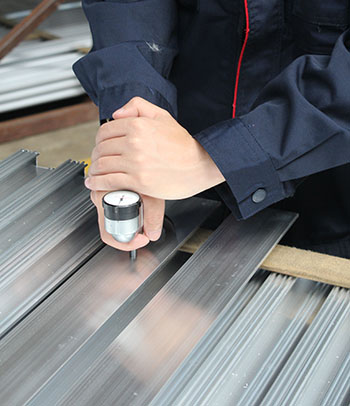Barcol hardness tester is an indentation hardness tester. It was first produced by Barber Colman company in the United States. Model 934 is used for pure aluminum, softer aluminum alloy, aluminum plate, aluminum rod and aluminum alloy castings, forgings, die castings, etc; Model 935 is used to detect soft metals such as lead and tin; Model 936 is used to detect leather, rubber, wood, etc.
The Barcol hardness tester of TX company is the same as the Webster hardness tester, which is used to detect the hardness of aluminum and aluminum alloy materials. The difference from the Vickers hardness tester is that the Barcol hardness tester can be used to detect thick wall aluminum alloy profiles that cannot be detected by the Vickers hardness tester. It can also detect pure aluminum, softer aluminum alloy, super hard aluminum alloy, aluminum plate, aluminum rod, aluminum alloy castings, forgings, die castings, etc. The accuracy of Barcol hardness tester is 100 units, and the sensitivity is much higher than that of Webster hardness tester.

The internal standard requirements of TX company are more strict. The pressing needles have been strictly inspected one by one, which can ensure their service life and interchangeability. The spiral rod used by TX's Barcol hardness tester is made of complex and precise metal material, and its service life and performance are much higher than those of plastic gear products used in other domestic products. All hardness blocks of TX Barcol hardness tester are directly imported from the United States, and its preparation, stability and consistency are unmatched by domestic products.
